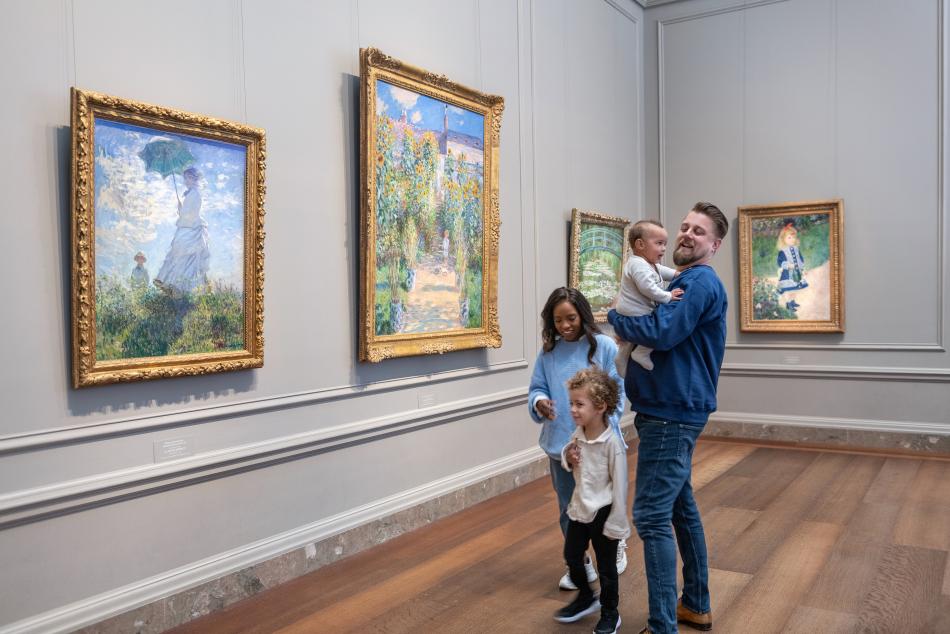Edouard Manet
French, 1832 - 1883
Born in Paris in 1832 to a wealthy family, Edouard Manet showed promise in drawing and caricature from an early age. After twice being denied admission to France’s prestigious Naval College, he enrolled in 1850 at the studio of academic artist Thomas Couture. While copying paintings at the Louvre, Manet became attracted to the bold brushwork of Spanish painter Diego Velázquez. He soon adopted a free manner of painting that opposed the polished surfaces revered by academic artists. Rather than gradually building up a composition with layers of blended pigments and translucent glazes, Manet selected and applied patches of color side by side, from the start, for their final effect.
Manet set out on his own artistic career in 1856. Soon after, his focus on modern subject matter – street scenes, bar life, and backhanded versions of famous art icons – coupled with his unconventional paint handling, regularly provoked critics’ wrath. Olympia, a painting of a naked courtesan who frankly engages the viewer in parody of the classic Venus, triggered an unparalleled scandal when it was exhibited at the 1865 Salon. The uproar made Manet the de facto leader of the avant-garde.
Manet’s bold style, contemporary subject matter, and determination to challenge entrenched academic models influenced younger artists who would come to be known as the impressionists. Manet, too, learned from them, lightening his palette and using even freer brushwork. But he did not share the impressionists’ spontaneity; the striking immediacy of Manet’s greatest works resulted from a deliberate process involving drawing, models, and painting in a studio. Still determined to make his mark in the official Salon, he declined the more radical option of exhibiting with the impressionists.
Manet continued producing enigmatic and inventive paintings about urban life until his death in 1883. While he had gained a reputation as an influential innovator, only posthumously would he be recognized as a father of modern art.
Explore Selected Works
See all 86 works of artArtwork

Flowers in a Crystal Vase
Flowers in a Crystal Vase
Edouard Manet · c. 1882 · oil on canvas · Accession ID 1970.17.37
Artwork

Madame Michel-Lévy
Madame Michel-Lévy
Edouard Manet · 1882 · pastel on canvas · Accession ID 1963.10.161
Artwork

Two Apples
Two Apples
Edouard Manet · 1880 · watercolor over graphite on wove paper · Accession ID 1985.64.102
Artwork

Cucumber with Leaves
Cucumber with Leaves
Edouard Manet · c. 1880 · watercolor and gray wash on laid paper · Accession ID 1985.64.103
Artwork

Artwork

The Railway Restaurant
The Railway Restaurant
Edouard Manet · c. 1879 · pen and brown ink on wove paper laid down · Accession ID 2006.128.25
Artwork

George Moore in the Artist's Garden
George Moore in the Artist's Garden
Edouard Manet · c. 1879 · oil on canvas · Accession ID 2006.128.24
Artwork





